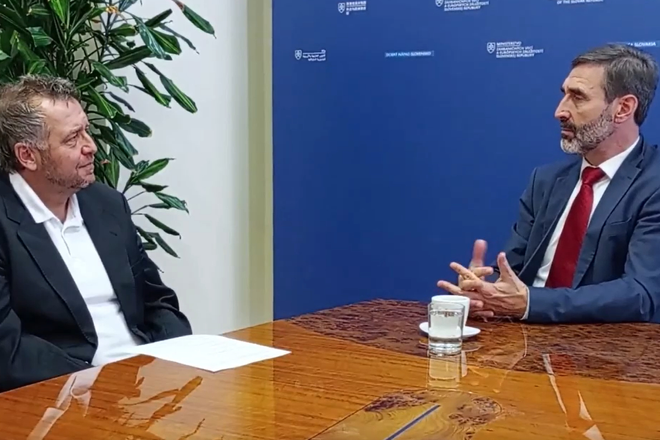Slovak Foreign Minister Juraj Blanár of the ruling Smer party agreed to an interview with the pro-Russian and disinformation website Hlavné Správy (Main News), which the outlet ran on Tuesday.
The video interview, in which Blanár repeats Slovakia’s position on the war in Ukraine and stresses the importance of cooperation within the V4 region, lasts more than 20 minutes.
The interview was carried out by the notorious Czech-speaking anti-vaxxer Zdeněk Kedroutek.
The previous government blocked the website, a popular source of information for a certain group of news readers, for a few months last year over the alleged links to Russia. The temporary ban came a week after Russia invaded Ukraine.
Pro-Russian contributors
Several people who have written and published their stories on the website have links to the Kremlin.
Russian spy Bohuš Garbár, who contributed to Hlavné Správy, was convicted of espionage and corruption in Slovakia earlier this year.
Russian Yevgenij Palcev writes for the website under the name of Eugen Rusnák and spreads Kremlin propaganda. He is said to have contacts with the Russian media group Russia Today, which is financed by the Kremlin.
In recent years, the pro-Russian website Armadnymagazin.sk has also been incorporated into Hlavné Správy.
Avoiding the media critical of administration
Paradoxically, the Slovak Foreign Ministry is one of the ministries that has been fighting Russian disinformation in recent years. But the new foreign minister’s appearance on Hlavné Správy comes several days after it surfaced that the current government plans to eliminate the work of the teams dealing with the agenda.
Conversely, PM Robert Fico (Smer) and ministers for Smer decided to boycott four leading media outlets in Slovakia. The administration, which has halted military support of Ukraine, sees these outlets as ‘liars’.
The pro-Russian website Hlavné Správy was unblocked after a few months as the early decision to block it was not made by the court, and the National Security Authority (NBÚ) failed to inform the website about the reasons why it decided to block it.
The populist party Sme Rodina, one of the ruling parties in the previous OĽaNO-led governments, paid the website for advertisement.


 MFA Juraj Blanár interviewed by the disinformation and pro-Russian website Hlavné Správy on November 27, 2023. (source: Hlavne Správy)
MFA Juraj Blanár interviewed by the disinformation and pro-Russian website Hlavné Správy on November 27, 2023. (source: Hlavne Správy)